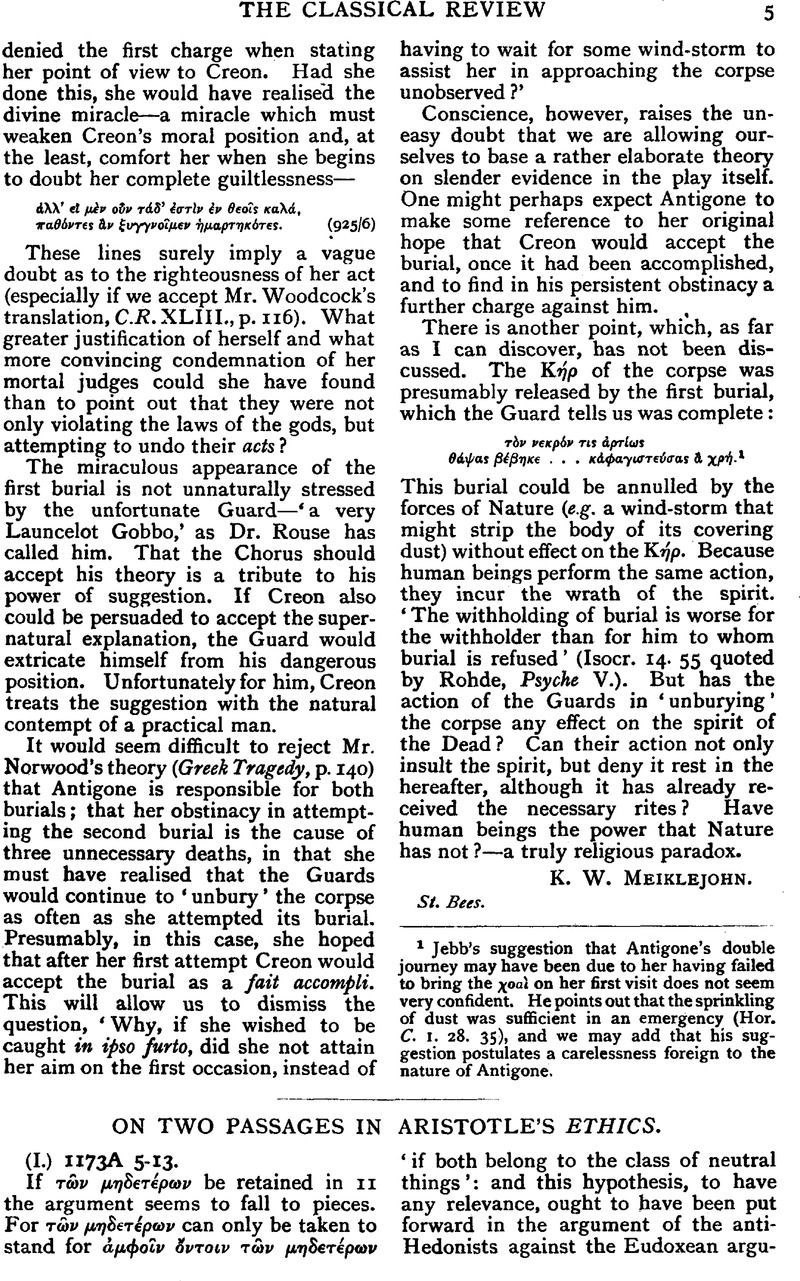No CrossRef data available.
Published online by Cambridge University Press: 27 October 2009

page 6 note 1 I accept Bywater's <τν> in io as an improvement, though not really essential. Mr. H. Rackham reminds me that Kh has ὔντων κακων, and that this is no doubt a lipography for ν <τοιν> τν κακν.
page 6 note 2 The two Kai will not be correlative: the first will mean ‘also,’ i.e. οὐ μνον γαθῷ λλ καἰ.
page 7 note 1 It may fairly be called a suggestion, though of course it is made only to be rejected.
page 7 note 2 In view of the fact that ὑγɛια and ἰατρς are Aristotle's stock examples of formal and efficient causes I do not think that the proportion can mean anything less than this.
page 8 note 1 Alternatively we might take νυπρχουσα as agreeing with δον, instead of inserting a second article.
page 8 note 2 Ross has ‘the corresponding permanent state’; Peters ‘the habit or trained faculty’; Welldon ‘a state or quality’; Rackham ‘the fixed disposition.’